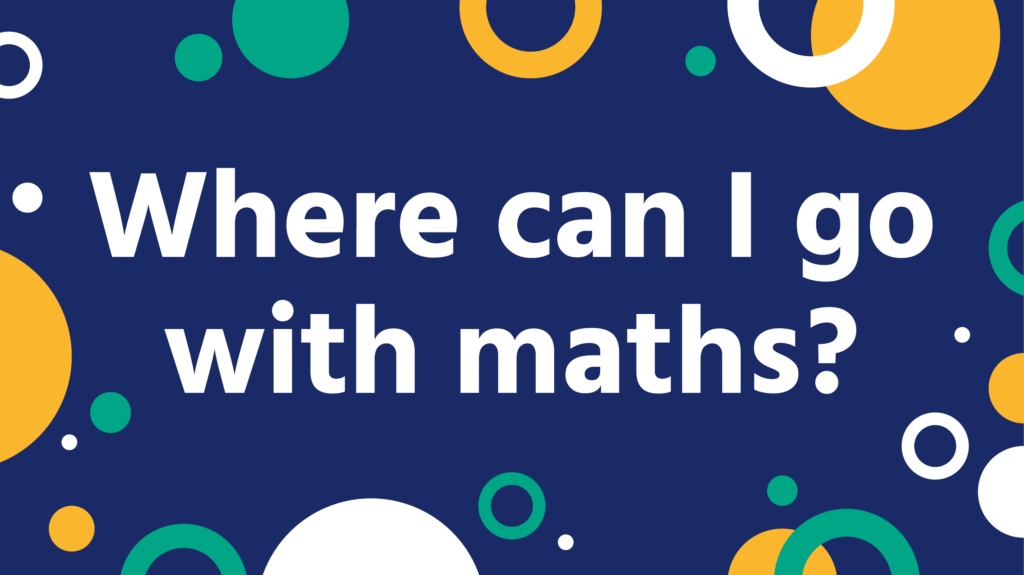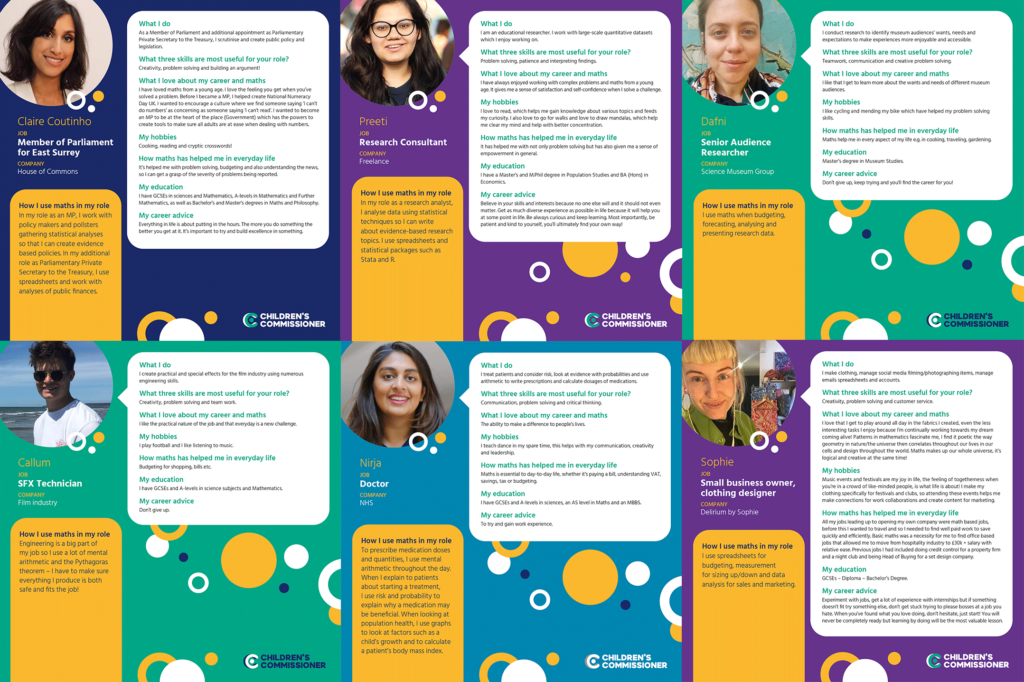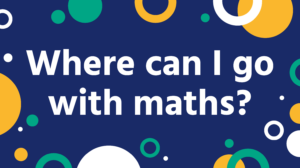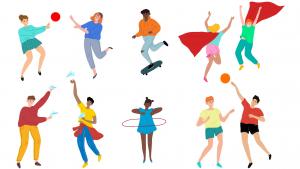Yesterday, I wrote about my work on promoting maths and STEM subjects for girls and how important this is.
Today, on National Numeracy Day, I am launching an interactive quiz connecting the KS3 maths curriculum to careers, skills and everyday life. This will give young people the opportunity to recognise the applications of the maths they are using in their lessons and ‘match’ them with careers suited to their skills and interests. I hope this tool enables young people to see the opportunities that maths can provide.

Of course, this is not the only solution, and we have much more to do to, but I hope with continued efforts we can begin to match the ambitions shown in The Big Ask.
This new resource aims to highlight the opportunities that maths can offer young people. ‘Where can I go with maths?’ is an interactive quiz featuring over 50 career profiles of role models using maths or maths skills in their work.
It shows how people understand and work with numbers in everyday life, sparking better opportunities and brighter futures. It is important to celebrate the people using maths in their careers, and lives, and showcase these role models, helping highlight the opportunities maths can provide.
Claire Coutinho MP, who founded National Numeracy Day, has supported me in developing this resource and provided a profile.
“One of the best ways for young people to earn more is to study maths. Don’t believe me? Ask Bill Gates or even Snoop Dogg. Good numeracy and maths are going to be ever more critical in a changing world where we have to assess the costs of different product choices, root out truth from disinformation, and thrive in a work landscape increasingly dominated by tech and artificial intelligence. So I applaud the inspirational Dame Rachel de Souza for putting this at the forefront of her agenda for children.” – Claire Coutinho MP
In The Big Ask survey, which had over half a million responses and was the largest ever survey of children in England, children and young people told me that jobs were a top priority. They told me that they want to get on and do well. When asked to choose from a list up to five things that will be most important to have a good life, the top choice among children aged 9-17 was “a good job or career” (selected by 69% of children).
Career ambitions were shared by children from such young ages:
“I want to go to college to do maths.” – Girl, 6
“I want to become a software engineer.” – Girl, 7
“I will work hard to be a vet.” – Boy, 7
“I want to be an engineer but I am afraid that I won’t be accepted because i am a girl.” – Girl, 10
I am particularly passionate about the need to showcase the benefits that being maths literate will have on young people’s futures.
I’m also aware that girls often stop maths and related subjects too early and are less likely to take up careers in STEM. In a survey of KS4 children’s attitudes towards different subjects, while 77% of girls thought that a STEM subject will yield the highest salary, only 51% of girls named STEM as the subject area most likely to lead to a job in the future, compared to 69% of boys. So, I want to help girls, in particular, know that they can succeed in maths and that persisting with maths will offer more choices.
“I think that the stigma for girls in science and maths is very toxic. from very young, as a girl I didn’t see any girls taking on that career path and just thought that girls couldn’t do this. I now know that I want to go into the chemistry field…” – Female, 14
“The curriculum leaving out important life skills. Sure we know algebra but I don’t [know] a thing about taxes or managing money among other things.” – Boy, 15
“They may not be presented with the same opportunities as those […] have that role model (e.g parents) to show that they are able to achieve higher careers.” – Girl, 16
The ‘Where can I go with maths?’ quiz will be an integral resource for two of the key pillars of my work as Children’s Commissioner; Jobs and Skills, and School. It is also an important piece of work following on from the Girls in STEM Roundtable that I hosted.
‘Where can I go with maths?’ aims to support young people by:
- Increasing the awareness of just how many careers use maths and how it is used in life more generally. The resource shares a diverse range of roles, some which might not traditionally be thought of as involving maths such as baker, special effects artist, and fashion designer. Each role model shares real-life examples of where maths has been useful, their own personal interests, and how these might support their careers.
- Sharing the transferable skills that are used by each person in their role. Highlighting skills that young people can relate to, and recognise that they might already utilise or be developing these skills through education, hobbies and interests.
- Showcasing how the content they are learning in school relates to careers and everyday life. The quiz generates different profiles depending on the interests of the young person e.g. which area of maths they are most interested in, and which skills they relate to most.

I want to help young people recognise that learning maths is crucial to support them in lots of different areas of life and to achieve their future ambitions.
I highlighted more career aspirations from girls from The Big Ask in my blog for International Women’s Day and provided a preview to this resource, highlighting women using maths in their careers for National Careers Week.
We are keen to keep developing the ‘Where can I go with maths?’ resource and adding to the variety of roles and career backgrounds of the role models, please get in touch via email, [email protected], if you would like to be featured.






